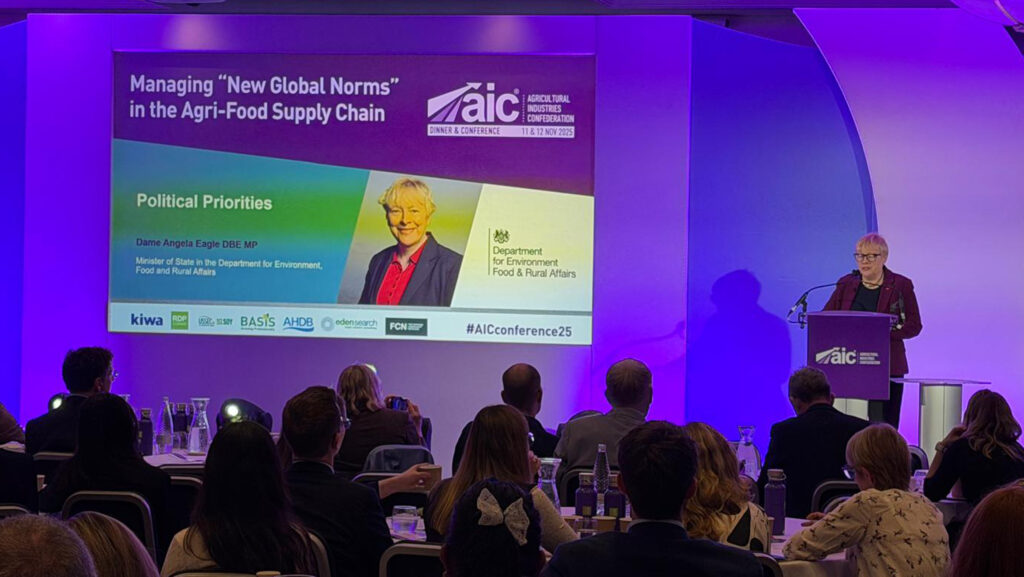Editor’s View: Can Eagle bring Defra’s dithering to an end?
 Angela Eagle at AIC Conference © AIC
Angela Eagle at AIC Conference © AIC “I arrived at Defra and found out we had eight strategies. I’m a chess player and normally you have one strategy.”
So said Defra minister Dame Angela Eagle at the AIC Conference this week, in one of her first public outings after being given responsibility for food security and rural affairs in early September.
It was a well-made point from the veteran politician. Having an abundance of strategies is the same as having no strategy at all.
See also: Brexit ‘reset’ threatens half of British farmers’ herbicides
This is the position in which English farmers have found themselves for much of this year – once again waiting for the government to decide which direction to point them in.
Just 7% of respondents to the department’s last opinion tracker in April said they had a full understanding of Defra’s vision for farming.
That is commendable, since not even those inside the department appear to have much of an idea.
Since spring, there has been an abundance of activity in working up the aforementioned strategies, but, as yet, nothing to show for it.
This week, we learned for certain what had been suspected for months – that many of the answers will not be made known until 2026, although Defra has pledged to publish the Batters profitability review in early December.
And what is the consequence of this drift?
Could it be that in every interdepartmental discussion where farming comes up, it becomes a sacrificial pawn when in competition with something that has more clearly defined red lines?
This is abundantly clear in our lead story this week on the trade-offs to come as the UK and EU get down to negotiating the promised closer alignment on a range of issues, including agriculture.
Bayer’s head of public affairs, Mark Buckingham, noted that 60% of the herbicides used this autumn by UK farmers are not approved in the EU.
If Defra does not end up making a solid commitment to food production, the risk of them being haggled away at the stroke of a pen is extremely high, further jeopardising an arable sector that doesn’t have many pieces left to play.
So will Dame Angela be the grandmaster to set a winning strategy? It is still too early to say.
Yet I did not feel disheartened at the end of her speech and Q&A at this week’s conference.
Underneath a mop of Boris Johnson-esque blonde hair (the similarities end there, I hasten to add) lurks a mind well-attuned to the corridors of power – a potent weapon if she can be persuaded the fights are worth having.
Her remarks on most topics were guarded, although it was interesting to hear she is set to take some key decisions on the Sustainable Farming Incentive in the next few weeks.
This will follow an analysis of how much of the money has gone to the largest farming businesses in the last scheme – a hint that the next iteration may in some way explicitly seek to funnel a greater proportion of cash to smaller farmers.
The board is set and, after a long hiatus, the time may finally be at hand when the pieces start to move again.

